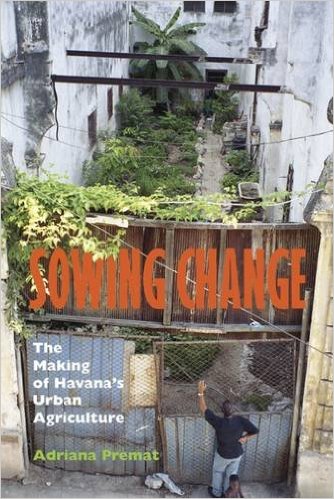Review of "Sowing Change: The Making of Havana’s Urban Agriculture"
“The decline in productivity of conventional agriculture in Cuba after the break-up of the Soviet Union, and the island’s consequent shift towards a more decentralized, organic, and urban agriculture has captured the imagination of proponents of alternatives for agribusiness-as-usual. Books like Sustainable Agriculture and Resistance (Funes et al., 2002) and Rosset & Benjamin’s The Greening of the Revolution (2002), as well as numerous documentary film projects, narrate the story of an authoritarian state forced to change its ways accompanied by an almost heroic popular effort to produce food in every nook and cranny available. While varying in approach, these representations of the dramatic expansion of food provisioning in urban areas of Cuba have privileged the State as the principal actor and enabler of this revolution. Adriana Premat’s new book, Sowing Change: The Making of Urban Agriculture in Havana, suggests that while the Cuban state is one of the agents of change, it is far from monolithic in seeking to shape urban agriculture. Indeed, Premat shows that the “making” of the island’s horticultural spaces (in the sense of their discursive and physical construction) is the result of the sometimes parallel, sometimes conflicting actions of various state actors, international NGOs, and the producers themselves…”

